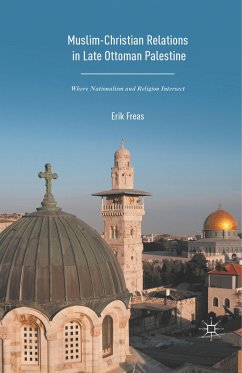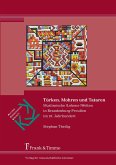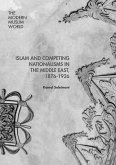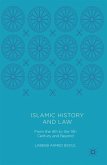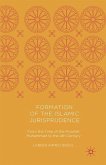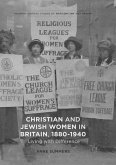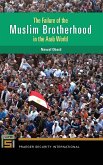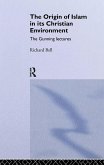Numerous factors underlie the dynamic shaping of present-day Muslim-Christian Arab relations as well as the formulation of Arab national identity. In Muslim-Christian Relations in Late-Ottoman Palestine, Erik Freas argues that paramount among these were three developments that transpired in the late-Ottoman period, of which Palestine provides a microcosm. One is that non-Arabic speaking Christian communities began to define identity in nationalistic terms on the basis of faith. Also, with their transformation into politically equal Ottoman citizens, Christians were more intent on taking advantage of their new rights rather than fulfilling civil obligations. Finally, for most Muslim Arabs, the transition from identifying primarily as 'Muslim' to 'Arab' in terms of their broader communal affiliation often entailed little change in how they experienced communal identity in the day-to-day. Taken together, the analysis of these developments provides an in-depth examination of Muslim-Christian Arab relations in Palestine during the nineteenth century as well as the long-term implications of these changes on the manner of Arab national identity's formulation.
"Interest in the relationship between Christians and Muslims in Palestine in the twentieth century has hit an all-time high. Freas pulls together many disparate pieces to provide the prequel to that story as he offers detailed explanations with evidence, context, and depth for what are usually simplistic assumptions about that nineteenth century. Muslim-Christian Relations in Late-Ottoman Palestine is certainly a worthy addition to the literature in the field." - Noah Haiduc-Dale, Assistant Professor of History, Centenary College, New Jersey, USA; author of Arab Christians in British Mandate Palestine: Communalism and Nationalism, 1917-1948

